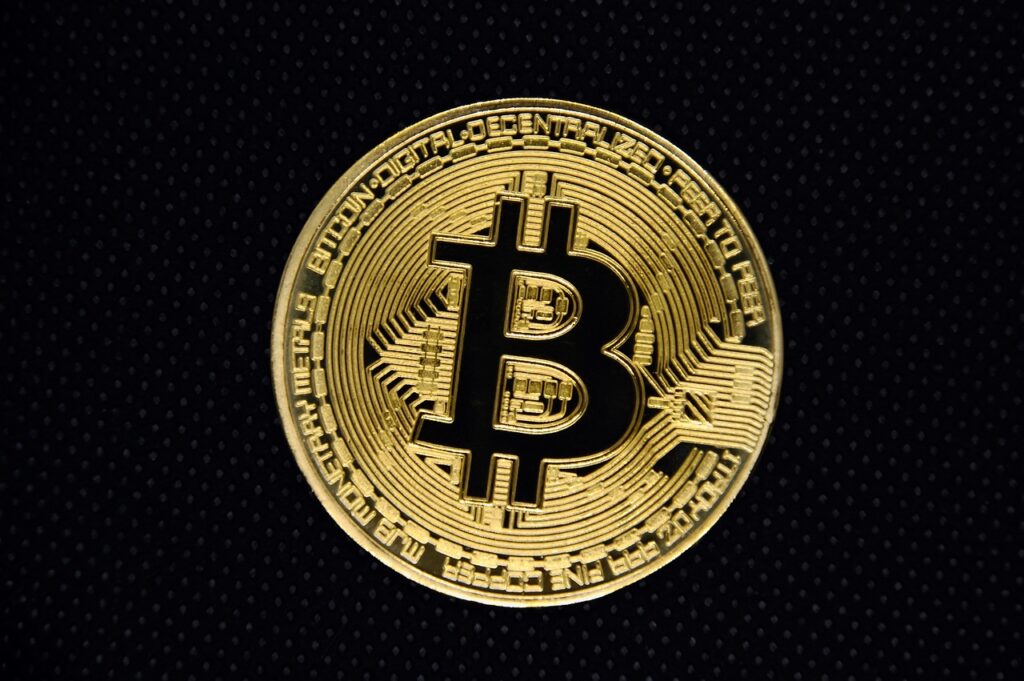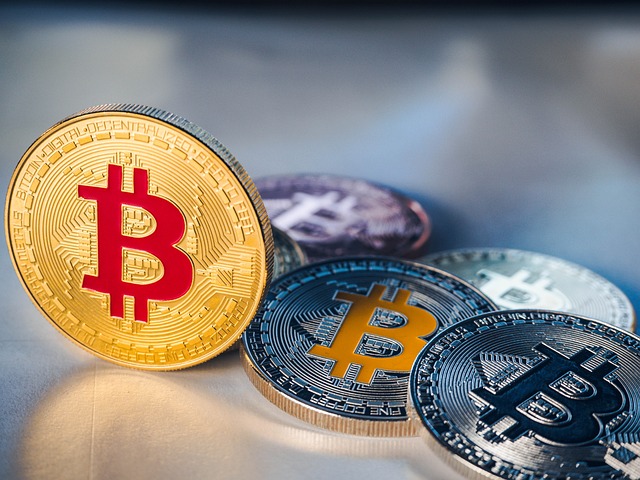The DeFi Project Landscape: Pioneering the Future of Finance
The DeFi Project Landscape: Pioneering the Future of Finance

Decentralized Finance: Revolutionizing the Financial World
Decentralized Finance, also known as DeFi, has emerged as a game-changer in the financial world. It is revolutionizing traditional banking systems, offering a new way of conducting financial transactions and managing assets. Unlike traditional centralized systems, DeFi relies on blockchain technology to create a decentralized ecosystem, removing the need for intermediaries like banks or brokers. This provides individuals with more control over their finances, as well as access to a wide range of innovative financial products and services.
One of the key aspects that sets DeFi apart is the use of smart contracts. These are self-executing contracts with the terms of the agreement directly written into the code. By utilizing smart contracts, DeFi projects are able to automate processes such as lending, borrowing, and trading, eliminating the need for intermediaries and reducing costs. Additionally, smart contracts provide a higher level of transparency and security, as all transactions are recorded and verified on the blockchain. This not only enhances trust among participants but also ensures that the rules of the contract are followed without the need for human intervention. Overall, DeFi is disrupting the financial world by introducing a new paradigm of decentralized and trustless services, empowering individuals to take control of their financial future.
Understanding the Basics of DeFi Projects
DeFi, short for Decentralized Finance, is a new and exciting concept that is revolutionizing the way we think about traditional finance. Unlike traditional financial systems that are controlled by centralized authorities such as banks or governments, DeFi projects are built on blockchain technology, making them transparent, secure, and accessible to anyone with an internet connection.
At its core, DeFi aims to decentralize financial services by removing intermediaries and allowing individuals to have complete control over their financial assets. This means that instead of relying on banks to hold and manage funds, individuals can now participate in financial activities directly through decentralized applications (dApps).

Exploring the Benefits of Decentralization in Finance
Decentralization in finance has emerged as a disruptive force, bringing with it a wide range of benefits that are reshaping the traditional financial landscape. One of the key advantages is the removal of intermediaries, such as banks or financial institutions, which limits the control and influence they have over transactions. This allows for greater transparency and trust in the system, as transactions can be verified and validated by a decentralized network of participants, rather than relying on a single centralized authority.
Moreover, decentralization enables greater financial inclusion, providing access to financial services to individuals who may have been excluded from the traditional banking system. With the use of blockchain technology, individuals in underserved regions or those without access to traditional banking infrastructure can participate in the financial ecosystem. This opens up opportunities for economic growth and empowerment, as individuals can now transact, save, invest, and access loans more easily, without the need for a physical presence or intermediaries. The benefits of decentralization in finance extend beyond the individual level, as it also promotes financial resilience, by reducing the risk of a single point of failure.
The Role of Smart Contracts in DeFi
Smart contracts play a significant role in the decentralized finance (DeFi) ecosystem.

One of the key advantages of using smart contracts in DeFi is their ability to remove the need for trust. Traditional finance often relies on intermediaries to facilitate transactions and enforce agreements. However, with smart contracts, the code itself ensures that the terms of the agreement are followed. This eliminates the need to rely on a centralized authority, reducing the potential for fraud or manipulation. Additionally, smart contracts provide transparency as they are stored on a public blockchain, allowing anyone to verify and audit the code, ensuring that the terms are fair and executed as intended.
Key Players in the DeFi Space: Who’s Leading the Pack?
Decentralized finance (DeFi) has emerged as a hotbed for innovation and disruption within the financial sector. With this burgeoning industry, it’s important to identify the key players who are leading the pack in shaping the future of DeFi.
One such player is MakerDAO, the creator of the DAI stablecoin. MakerDAO’s decentralized autonomous organization (DAO) allows users to generate DAI by locking up collateral in the form of cryptocurrencies. By ensuring the stability and pegging mechanism of DAI to the US dollar, MakerDAO has become a prominent contributor to DeFi’s goal of providing financial stability in a volatile market. Their platform has gained significant adoption and trust, solidifying their position as a leader in the space.
Another noteworthy player in the DeFi space is Compound, a lending and borrowing platform that operates on the Ethereum blockchain. With Compound, users can supply their assets and earn interest, while borrowers can take out loans by collateralizing their cryptocurrencies. This decentralized lending model has attracted a considerable user base, making Compound a driving force in DeFi. Their commitment to innovation and openness has propelled them to the forefront, ensuring their place among the top players in the industry.
These are just a few examples of the key players who are currently leading the pack in the DeFi space. As the industry continues to evolve, it will be fascinating to see the dynamic interplay between these players and the emergence of new contenders. In the next section, we will delve deeper into the challenges and risks associated with DeFi projects. Stay tuned!
Challenges and Risks Associated with DeFi Projects
Navigating the world of decentralized finance (DeFi) is not without its challenges and risks. As this nascent industry continues to gain traction, it is essential to be aware of the potential pitfalls that come with it. One of the prominent challenges is the issue of security. While blockchain technology itself is considered secure, vulnerabilities can still exist within the smart contracts that power DeFi projects. These smart contracts are essentially self-executing contracts with the terms of the agreement directly written into code. However, any bug or flaw in the code could leave the project vulnerable to hacking or manipulation.
Another challenge is the lack of regulations and oversight in the DeFi space. Unlike traditional financial systems, DeFi operates without the involvement of central authorities or intermediaries.

Unlocking the Potential of Yield Farming in DeFi
Yield farming, a popular concept within the world of decentralized finance (DeFi), has been rapidly gaining attention and attracting investors from all corners of the globe. This innovative practice allows users to generate returns on their cryptocurrency holdings by lending, staking, or providing liquidity to DeFi protocols. By harnessing the power of smart contracts, yield farming provides individuals with opportunities to maximize their profits in a decentralized and transparent manner.
One of the key benefits of yield farming is the potential for high returns. Unlike traditional savings accounts or investment vehicles, yield farming offers significantly higher interest rates, sometimes reaching double-digit percentages. This attractive feature has enticed many individuals to participate and explore the possibilities within the DeFi space. Moreover, yield farming allows for the diversification of earning opportunities, enabling users to simultaneously invest in multiple DeFi projects and tokens. As a result, individuals can hedge their bets and minimize risks while maximizing their potential earnings.
• Yield farming allows users to generate returns on their cryptocurrency holdings through lending, staking, or providing liquidity to DeFi protocols.
• The use of smart contracts in yield farming ensures decentralized and transparent profit-maximizing opportunities.
• Yield farming offers significantly higher interest rates compared to traditional savings accounts or investment vehicles.
• Users can diversify their earning opportunities by investing in multiple DeFi projects and tokens simultaneously.
• This diversification helps hedge bets and minimize risks while maximizing potential earnings.
The Rise of Decentralized Exchanges: A Game Changer for Trading
Decentralized exchanges (DEXs) have emerged as a game changer in the world of trading, offering a range of benefits and opportunities for both individual traders and the overall market. Unlike traditional exchanges that rely on intermediaries and centralized structures, DEXs operate on a peer-to-peer basis, enabling users to trade directly with each other. This eliminates the need for intermediaries such as brokers and custodians, reducing costs and increasing efficiency.
One of the key advantages of decentralized exchanges is the enhanced security they provide. By eliminating the need to trust a centralized authority with user funds, DEXs significantly reduce the risk of hacking or theft. Instead, transactions are conducted directly between users’ wallets, ensuring that they maintain control over their assets at all times. This enhanced security, coupled with the transparent nature of blockchain technology, creates a level playing field for all participants, promoting trust and accountability in the trading process.
The Role of Stablecoins in DeFi: Ensuring Stability in a Volatile Market
Stablecoins play a crucial role in the world of decentralized finance (DeFi) by ensuring stability in a highly volatile market. These digital currencies are designed to maintain a stable value, usually pegged to a fiat currency like the US dollar or a basket of assets. By doing so, stablecoins provide a reliable medium of exchange and store of value in the decentralized financial ecosystem.
One of the main advantages of stablecoins in DeFi is their ability to reduce the exposure to price fluctuations that are inherent to cryptocurrencies. With stablecoins, users can quickly and easily move funds between different DeFi protocols without worrying about the value of their assets changing drastically during the transaction. This stability is particularly important for certain use cases like lending and borrowing, where borrowers want to protect themselves from sudden market downturns and lenders need assurance that they will be repaid in a stable currency. Overall, stablecoins act as a bridge between the traditional financial world and the innovative DeFi landscape, providing a stable and familiar reference point for users in an otherwise volatile market.
Innovations and Future Trends in the DeFi Landscape
In the world of decentralized finance (DeFi), innovations and future trends are constantly emerging, reshaping the landscape and bringing exciting possibilities for investors and users alike. One area that is garnering significant attention is the integration of artificial intelligence (AI) and machine learning (ML) into DeFi protocols. AI and ML technologies have the potential to enhance decision-making, automate processes, and improve efficiency in various aspects of DeFi. From predicting market trends to analyzing user behavior, these technologies can revolutionize how DeFi platforms operate, offering faster and more accurate outcomes.
Another promising trend in the DeFi space is the advent of cross-chain interoperability. Currently, most DeFi projects are built on specific blockchain networks, limiting their reach and interoperability. However, developers are working on solutions that allow different blockchain networks to interact and share data seamlessly. This not only expands the possibilities for collaboration between projects but also improves accessibility for users. With cross-chain interoperability, users can utilize a broader range of DeFi platforms and leverage the unique features of various blockchains, driving innovation and creating new opportunities for decentralized finance.
What is DeFi?
DeFi stands for Decentralized Finance, which refers to a revolutionary approach to financial systems that are built on blockchain technology and operate without the need for intermediaries like banks or traditional financial institutions.
How does DeFi revolutionize the financial world?
DeFi brings transparency, accessibility, and inclusivity to financial services by enabling anyone with an internet connection to access and participate in various financial activities like lending, borrowing, trading, and more, without relying on centralized authorities.
What are the basics of DeFi projects?
DeFi projects are built on blockchain platforms like Ethereum and utilize smart contracts to create decentralized applications (DApps). These DApps offer a wide range of financial services and allow users to interact directly with the applications using digital assets.
What are the benefits of decentralization in finance?
Decentralization eliminates the need for intermediaries, reducing costs, and increasing efficiency. It also provides greater financial freedom and control to individuals, as well as opens up opportunities for innovation and global financial inclusion.
How do smart contracts play a role in DeFi?
Smart contracts are self-executing agreements coded on blockchain platforms. In DeFi, they automate and enforce the terms of financial agreements, eliminating the need for intermediaries. Smart contracts ensure transparency, efficiency, and security in DeFi transactions.
Who are the key players in the DeFi space?
The DeFi space is full of innovative projects and platforms. Some key players include decentralized exchanges like Uniswap, lending protocols like Compound, and stablecoin projects like MakerDAO.
What are the challenges and risks associated with DeFi projects?
DeFi projects face challenges such as scalability, regulatory uncertainty, and potential vulnerabilities in smart contracts. Risks include market volatility, hacking attempts, and potential scams or fraudulent projects.
What is yield farming and how does it unlock the potential in DeFi?
Yield farming involves staking or lending digital assets in DeFi protocols to earn rewards or interest. It allows users to maximize their returns by utilizing different DeFi projects and strategies, incentivizing liquidity provision, and promoting the growth of the ecosystem.
How do decentralized exchanges change the game for trading?
Decentralized exchanges (DEXs) enable peer-to-peer trading directly from users’ wallets, eliminating the need for intermediaries. DEXs provide better privacy, security, and control over funds. They also offer a wider range of available assets and reduce the risk of centralized exchange hacks.
What is the role of stablecoins in DeFi?
Stablecoins are cryptocurrencies designed to maintain a stable value, often pegged to a fiat currency like the US dollar. In DeFi, stablecoins play a crucial role in providing stability and reducing the exposure to the volatility of other cryptocurrencies, enabling smoother transactions and value preservation.
What are the future trends and innovations we can expect in the DeFi landscape?
The DeFi landscape is evolving rapidly, and we can expect advancements like improved scalability solutions, interoperability between different blockchain networks, wider adoption of decentralized identity solutions, and the development of new financial instruments and derivatives in the DeFi space.
Todays Featured Product:
Buy, exchange and grow your crypto securely with a Ledger hardware wallet, combined with the Ledger Live app. It’s never been easier to keep your crypto safe and accessible. Buy direct from Ledger.com and get todays Special Offers Here.




